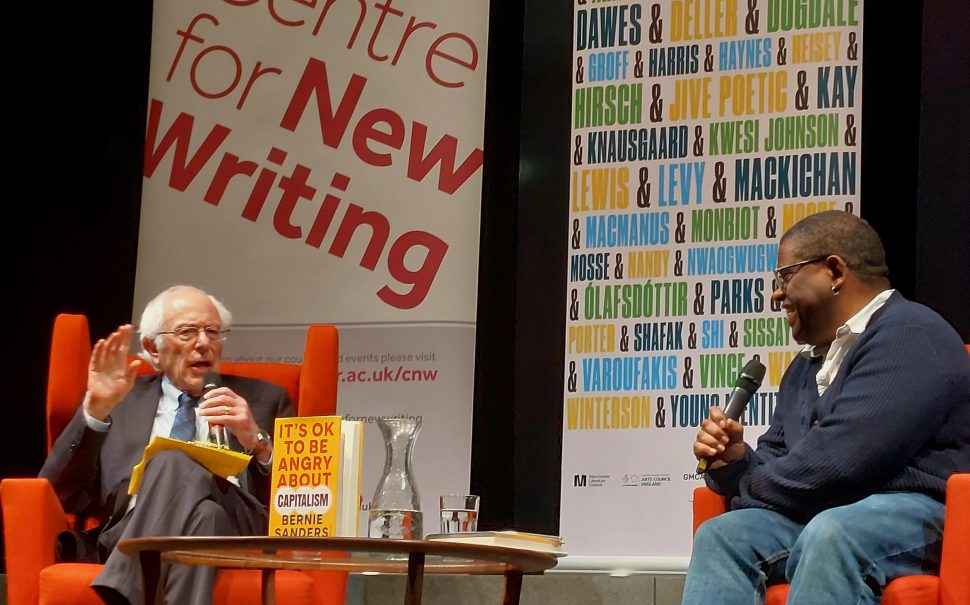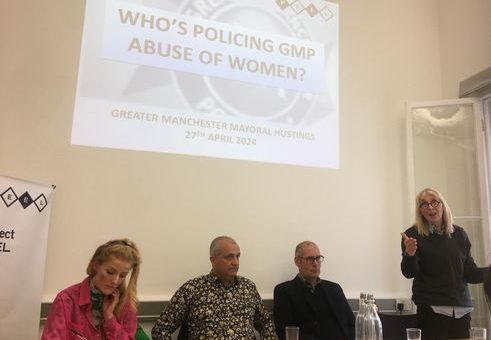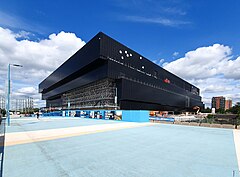US Senator Bernie Sanders made his long-awaited debut at the Manchester Literature Festival on Sunday night, delivering a rabble-rousing call to revolutionise the state of modern society and politics.
Part of the Manchester Literature Festival’s spring calendar, the progressive politician was here to promote his new book, It’s OK to be Angry About Capitalism. The New York Times and Sunday Times bestseller tackles an economic and political system that he argues is tailored to the top 1%, corporations, and the fossil fuel industry, and promotes a vision of a better, fairer, and environmentally sustainable society.
Sanders took to the stage at HOME Theatre, Manchester, to put into words just how that vision can be achieved.
University of Manchester Professor of Sociology Gary Younge hosted the discussion, with the two covering Sanders’ book, AI, the war in Gaza, and abortion rights, among many other topics in a lively evening.
Younge is also an award-winning author and columnist as well as the winner of the 2023 Orwell Prize for Journalism. Many of his works have focused on core issues in American politics, including gun violence in his most recent book, Another Day in the Death of America.
The event – in partnership with the Centre for New Writing, Creative Manchester and Penguin – was twice rescheduled due to the senator’s commitments in the US upper house, but undoubtedly worth the wait.
The longest-serving Independent member of Congress in American history, Sanders has become famous at home and abroad for his commitment to socialism and campaigning for change, from free healthcare for all to combatting the climate crisis.
After Younge introduced the event the senator walked out to raucous applause from a full house – although not everyone was so appreciative. Within the first minute of Sanders’ opening speech a heckler stood up and after a painfully long wait was escorted out. The senator was an engaging speaker who commanded the audience’s attention and appeared unbothered by the heckle, continued to speak over the interruption.
Sanders started with a powerful assessment of modern society, explaining his view that the world and particularly America are governed by the richest, including Wall Street, huge media corporations, and the fossil fuel and pharmaceutical industries. Despite America being the richest country in the world, he said, “real wages in America today are lower than fifty years ago and people are pissed off”.
Seven media conglomerates in the US account for 90% of the news and information consumed by viewers, so “big money controls what people see, read and hear”, he said. “We’re taking on the most powerful people in the world”, only interested in “their own miserable profits”.
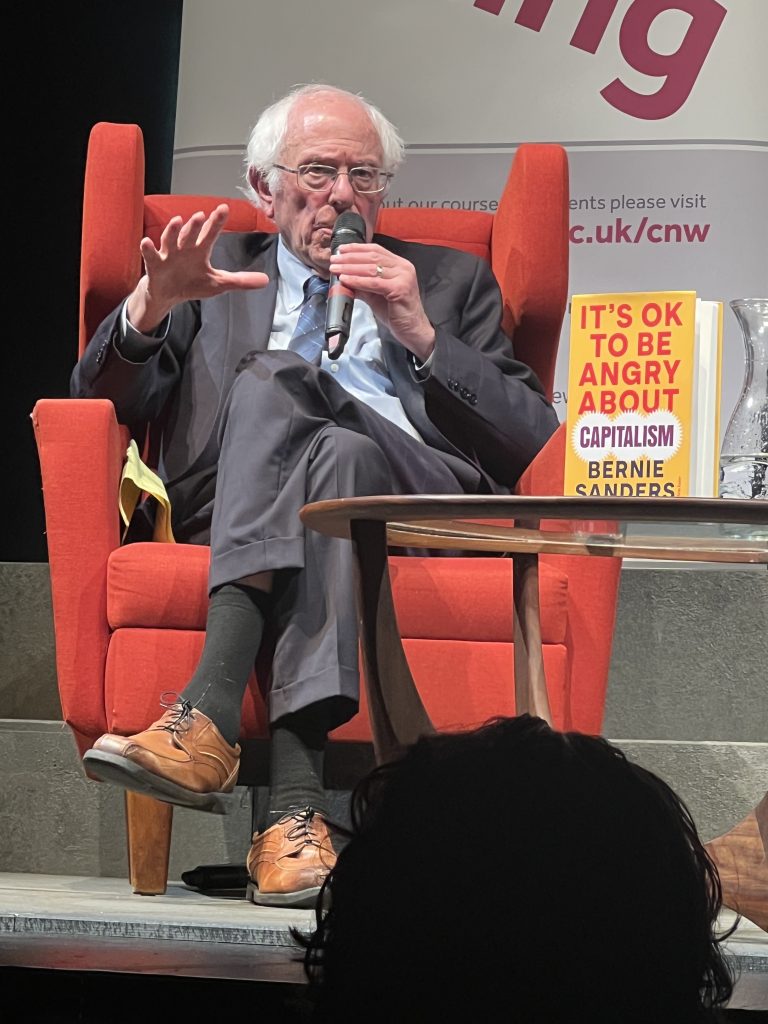
The senator rose to wider fame through his campaign for the Democratic presidential nomination in the run-up to the 2016 election, which he lost to Hillary Clinton. Sanders – as Younge pointed out in his introduction – has terrified Democratic centrists throughout his career, which he argues is why he failed to gain the backing of major news organisations and lost the nomination.
But the senator argued that his 2016 agenda wasn’t particularly radical: “Pretty much every other major nation has healthcare for all. You guys came up with that in 1948.” The issue, he said, was that “these ideas had not been heard on centre stage in American politics” before he came along.
It was clear that free and accessible healthcare was a particular passion project for Sanders, as he explained that the US spends two and a half times more per capita than people in the rest of the developed world on healthcare, but American outcomes and life expectancies are worse.
But there were also moments of dry humour amid the gloom. Younge started a question on the future of American democracy by saying “In 2020 Biden won”, to which Sanders responded quickly, “Yeah, I heard that.”
The discussion was deliberately made accessible, with Sanders using statistics sparingly and with effect, such as his point that since the Covid-19 pandemic two thirds of the world’s wealth has gone to the top 1%. Many of his points, and his incredulity that such progressive positions were seen as radical, were greeted by murmurs of agreement among the audience.
A voice for the working class throughout his long and storied career in American politics, every one of his points came back to what issues meant for working people.
When the conversation continued onto what the rise of artificial intelligence means for human life, Sanders was enthusiastic about the potential benefits. He described the “robotics revolution” as an “opportunity to wipe out poverty around the world” – but he also struck a warning note on the billionaires who control the technology.
“Who makes the decision as to what that [global] transformation looks like?” he asked, leading onto his work campaigning for a 32-hour working week and his firm belief that ordinary people need more leisure time and employment protections.
Despite refusing to slow down – touring the UK in a series of events for his book – and continuing as senator of his home state of Vermont, he also ruled out another run for nominee, calling being president “very hard work”.
Younge was a capable host, keeping the tone conversational while also asking difficult questions such as on Sanders’ stance on the ongoing conflict in Gaza. The senator drew widespread ire for not calling for a permanent ceasefire last week, including by the hecklers at Sunday’s event.
He argued Israel had the right to defend itself against Hamas’ attack on 7 October, but “what Israel did not have the right to do was to go to war with the entire Palestinian people.” His argument was that while he supported a ceasefire, calling for one was unlikely to be effective, instead suggesting that the best way forward was to cut off funding to Israeli prime minister Benjamin Netanyahu. “My strong belief is that Israel is violating international law,” he added, but a bill he supported to end military aid to Israel only got 12 votes in Congress.
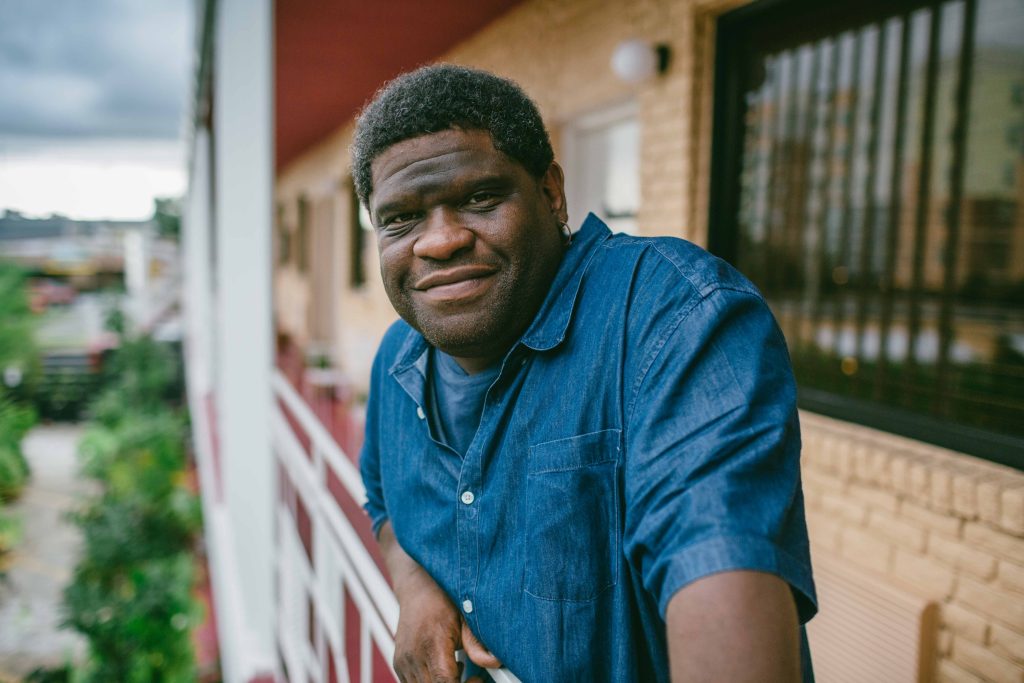
The intransigence of the Democratic party and flawed political system in the US was also a source of frustration for him. Off the back of the popular “American rescue plan,” which issued crisis payments to workers during Covid-19, Sanders and others worked on a similar plan called Build Back Better.
It was originally intended as a relief fund of over a trillion dollars but conservative Democrat Joe Manchin’s refusal to cooperate meant it didn’t become legislation. Sanders said emphatically: “I think if it had passed Biden would be ten points ahead in the polls.”
He credited some of Donald Trump’s enduring popularity – and the success of rightwing Republicanism – to a widespread belief that “the Democrats have turned their backs on working people.” Trump, by most measures not a “conventional politician”, appears outside of this political system.
Sanders said he was “absolutely” worried by Trump’s resurgence in the polls and remained convinced that delivering tangible results for the working class, on healthcare, childcare, and the environment, would only benefit the Democratic party and wider political system. He said: “How you restore faith of ordinary people in democracy is people have got to see real change in their lives. Not within two years, but within two months.”
It was evident throughout that Sanders had total faith in his vision and was single-mindedly focused on it, to the extent that he sometimes failed to address the specific question Younge asked, many of which were collated from attendees.
It was also clear how enormous the task ahead for the American progressive movement is. “I work in the United States Senate. It’s very demoralising”, Sanders noted wryly, and the mantra of “things are not easy” and issues being “not easy” accompanied many of his big ideas. But amidst all the “hard and laborious work of politics”, he ended on a hopeful note.
When asked about the issue of age among the 2024 presidential frontrunners – Joe Biden is 81 and Donald Trump 77, and Sanders himself is 82 – he said: “Look at the totality of the person. What does that person stand for?” He insisted he backed Biden regardless of their many differences and credited the president for his support of the Build Back Better plan.
He went on to say he was “inspired” by young people fighting for change, and the real advancements in society he had witnessed over his lifetime, from gay rights to civil rights to women’s control over their own bodies. We have “the most progressive young generation in history”, he said, concluding the evening on a stirring call to arms to make those progressive ideas into a real plan for change.
Feature image: Bernie Sanders at MLF. Image by Kate Feld
